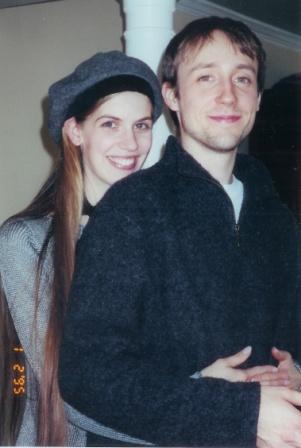The 7th General (or "Ecumenical") Council of the Church, as most people reading my posts already know, dealt strongly with the issue of iconoclasm. The 7th Council is most known for these dealings and subsequent condemnation of the iconoclasts.
But, prior to this Council, the Church had 6 General Councils in all. And it could be truly said that these first few Councils dealt more with Christology (and the Trinity, almost by implication in the Christology) than with any other subject. Given this, a certain Christological view flows forth from the first six Holy and General Councils of the Church. This is a Christology which, it seems, all mainstream Protestant denominations hold-to. In fact, most of them would agree with these first Six Councils and condemn as a heretic anyone who denied the following view of Christ, which springs forth from these Councils.
Christ could be truly said to be the Second Person of the Triune Godhead. He is of the same substance as the Father and Holy Spirit. That is, Christ is one in essence with the Father and the Holy Spirit. There is one Person (hypostasis) of Christ, even though in the Incarnation, the one Person takes on two natures: one divine, one human. He is fully divine in the Incarnation, yet he is fully human in the Incarnation as well. Each of the two natures possessed by the one hypostasis of the Son has a will of its own. That is, Christ has two wills to correspond to the two natures: one divine, one human. Now, contemporary Evangelical Protestants writings systematic theologies will invariably point, not to the first six Councils which really gave them their "orthodox" view, but to the Bible as support for all of these dogmas concerning Christ. (The last one which condemned Monotholitism, it must be admitted, is the most difficult one for which to find explicit biblical support. That Christ has two wills does not exactly jump off the pages of Scripture, and most honest Protestants will admit this.) But what is interesting to me is that one needs only to consider any historic heretic who was condemned in one of these early Councils (the list in an
earlier post will do well: "Novatian expounds in one way, Sabellius in another, Donatus in another, Arius, Eunomius and Macedonius in another, Photinus, Apollinaris, and Priscillian in another, Jovinian, Pelagius and Caelestius in another, and latterly Nestorius in another"). Every single one of them mustered
scriptural support for their various rejections of the bare-bones Christology given above. (Modern day "cults" do the same. See JW's or Mormons)
What is more is that when one reads a contemporary Evangelical systematics textbook covering Christology, the writer will appeal to scriptural passages as if that settles the matter in question. What seems to be the problem with this procedure is twofold. First, often the verses cited in support of the Christology coming out of the first 6 Councils do not overwhelm you with their obviousness, in terms of actually
being solid and undeniable support for the Christological position staked out by the Protestant. The texts are often cited, however, in such a way as to lead the reader to think that the author believes there to be no reasonable view of the verse in question, outside of the view held by the author. This stretches credulity to say the least. Second, if the
Scriptures themselves are the very things giving rise to the "orthodox" views concerning Christ, then why is it that the
Scriptures themselves were used as primary supports by all the heretics condemned by these first few Councils. If the Scriptures are so overwhelmingly obvious in these regards, then it seems we are left with an odd view: they give rise to both orthodoxy and heterodoxy. Or it seems we must conclude that the early heretics were either insane or quite stupid, given that they missed the
obviousness of the scriptural passages supporting the Conciliar view of Christ. Either option, again, stretches credulity.
It seems to me that a Protestant must be honest and admit that he gets his Christological orthodoxy from the Bible
and the Councils. To not admit this seems as disingenuous as if he were to say that his 27 books of the New Testament in his Bible have nothing to do with the canonical pronouncements of the local councils of Hippo and Carthage. Yes, the Bible
does support orthodox Christology, but it doesn't do so in such a way as to make one an idiot if he believes, for example, that Christ has only one will to correspond to his singular Personhood (or if he believes in monophysitism or modalism). And if you admit that though the Scriptures are fairly clear, yet not altogether sufficient to give one a full-blown Christology (and we not being altogether infallible interpreters of the fairly clear Scriptures), then you are on your way to a proper view of how orthodoxy comes about: i.e., from the Sacred Scriptures, Sacred Tradition, and the Magisterium (especially in the Ecumenical Councils).
And, of course, it seems to me that a Protestant getting his "orthodox" view of the Trinity and Christ from these Councils raises instantly the issue of the infallibility of the Church. If orthodox means necessarily true in the mind of a Protestant, then what were the decrees of those first six Councils other than infallible? If the Christology you hold is orthodox, and it corresponds exactly with the Christology of the 6 Councils, then it was either luck that the Councils got it right and agreed with you (!). Or, rather that the view you hold is orthodox
specifically because the Councils from which you mediately inherit the view were infallible. In which case, the Church must have some charism of general infallibility, irrespective of what one believes of the
specific infallibility as regards the pope. But, a post on general infallibility must wait for another day.

